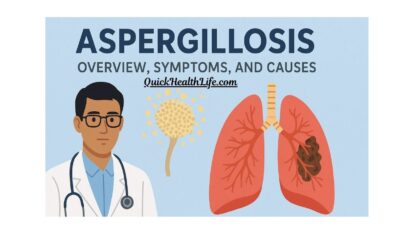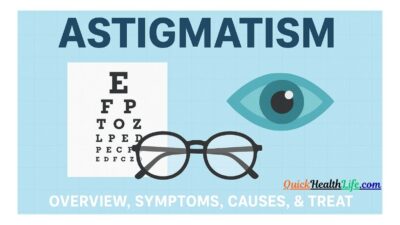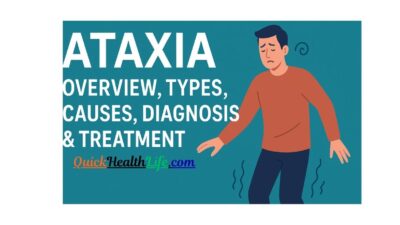What is Arrhythmia?
Arrhythmia means abnormal heart rhythm. Normally, the heart beats in a regular pattern. But in arrhythmia, the heartbeat can be:
- Too fast (tachycardia)
- Too slow (bradycardia)
- Irregular (skipped or extra beats)
This happens because the electrical signals that control the heartbeat are disturbed.
Table of Contents
Arrhythmia Symptoms
Many people with arrhythmia may not have symptoms. But when they do, common ones include:
- Palpitations (feeling like your heart is racing or skipping beats)
- Dizziness or lightheadedness
- Shortness of breath
- Chest pain
- Fatigue or weakness
- Fainting (syncope)
👉 Remember: Not all irregular heartbeats are dangerous, but if you have chest pain or fainting, seek medical help immediately.
What are Four Symptoms of Arrhythmia?
To keep it simple, the 4 main symptoms are:
- Palpitations
- Dizziness
- Shortness of breath
- Fainting
Causes of Arrhythmia
Several factors can disturb the heart’s rhythm, such as:
- Coronary artery disease (blocked arteries)
- High blood pressure
- Heart valve disorders
- Electrolyte imbalance (like low potassium or magnesium)
- Excessive caffeine, alcohol, or drug use
- Thyroid problems
- Stress or anxiety
- Genetic heart conditions
👉 Sometimes, arrhythmia has no clear cause.
What is the Main Cause of Arrhythmia?
The most common cause is abnormal electrical activity in the heart, often due to coronary artery disease or high blood pressure damaging the heart’s structure.
Types of Arrhythmia
Doctors classify arrhythmias based on heart rate and rhythm.
1. Tachycardia (Fast Heartbeat)
- Heart rate >100 beats per minute.
- Examples: Atrial fibrillation, Supraventricular tachycardia (SVT).
2. Bradycardia (Slow Heartbeat)
- Heart rate <60 beats per minute.
- Can cause fainting or fatigue.
3. Atrial Fibrillation (AFib)
- Very common type where upper chambers (atria) beat irregularly.
- Increases risk of stroke.
4. Ventricular Arrhythmias
- Starts in the lower chambers (ventricles).
- Can be life-threatening (like ventricular fibrillation).
👉 So the answer to “What are the 4 types of arrhythmias?” is:
- Tachycardia
- Bradycardia
- Atrial fibrillation
- Ventricular arrhythmias
Diagnosis of Arrhythmia
Doctors use several tests to confirm arrhythmia:
- ECG (Electrocardiogram): Main test to record heart’s electrical activity.
- Holter Monitor: Portable ECG for 24–48 hours.
- Echocardiogram: Ultrasound to check heart’s structure.
- Stress Test: Heart rhythm is checked during exercise.
- Electrophysiology Study: Detailed test of heart’s electrical system.
👉 Sometimes, doctors also use blood tests to check for thyroid or electrolyte problems.
Arrhythmia Treatment
Treatment depends on the type, severity, and cause of arrhythmia.
1. Lifestyle Changes
- Reduce caffeine & alcohol
- Quit smoking
- Manage stress
- Eat a heart-healthy diet
2. Medications
- Antiarrhythmic drugs (control heart rhythm)
- Beta-blockers (reduce heart rate)
- Blood thinners (prevent clots in AFib)
3. Procedures
- Cardioversion: Electric shock to restore normal rhythm.
- Ablation: Destroys abnormal heart tissue causing arrhythmia.
- Pacemaker: Device to treat bradycardia.
- Implantable Cardioverter Defibrillator (ICD): Device to prevent sudden death in serious arrhythmias.
Arrhythmia ICD-10 Code
Doctors use ICD-10 coding for diagnosis.
- I49.9 – Cardiac arrhythmia, unspecified
- I48.0 – Atrial fibrillation
- I47.1 – Supraventricular tachycardia
This is important for hospitals, billing, and insurance
Is Arrhythmia Dangerous?
- Mild arrhythmias may not be harmful.
- But serious ones like ventricular fibrillation can be life-threatening.
- Atrial fibrillation increases risk of stroke by 5 times.
So yes, some arrhythmias can be dangerous and need urgent treatment.
How to Fix Arrhythmia?
- Follow doctor’s advice and take prescribed medicines.
- In mild cases, lifestyle changes help a lot.
- In serious cases, procedures or devices (pacemaker/ICD) may be needed.
- Never self-medicate – always consult a cardiologist.
Complications of Arrhythmia
If untreated, arrhythmia can lead to:
- Stroke (due to clots in atrial fibrillation)
- Heart failure (weakened heart muscle)
- Sudden cardiac arrest
- Reduced quality of life (constant fatigue, breathlessness)
How I Cured My Arrhythmia ?
Some patients improve their heart rhythm naturally by:
- Doing daily exercise
- Practicing yoga & meditation
- Eating low-salt, heart-friendly diet
- Reducing stress
- Getting proper sleep
👉 But remember: Not all arrhythmias can be cured at home. Always seek medical guidance.
Frequently Asked Questions
1. What causes arrhythmia?
Mostly heart disease, high blood pressure, thyroid issues, or stress.
2. What is arrhythmia pain like?
Usually feels like chest discomfort, fluttering, or skipped beats.
3. How do you treat arrhythmia?
With medicines, lifestyle changes, or procedures like ablation and pacemakers.
4. Can you cure arrhythmia without surgery?
Yes, some cases improve with medicines and lifestyle changes. But serious ones may need surgery or devices.
5. Is a heart arrhythmia serious?
Yes, especially atrial fibrillation and ventricular arrhythmias. They can cause stroke or sudden death if untreated.
6. What are four symptoms of arrhythmia?
Palpitations, dizziness, shortness of breath, and fainting.
Conclusion
Arrhythmia is an irregular heartbeat that can range from harmless to life-threatening. With timely diagnosis and treatment, most patients live healthy lives.
As someone who has been writing health blogs for 3 years, I can confidently say: never ignore heart rhythm problems. If you experience palpitations, fainting, or chest pain, see a doctor immediately.



